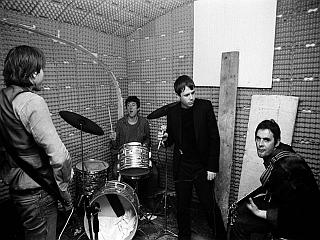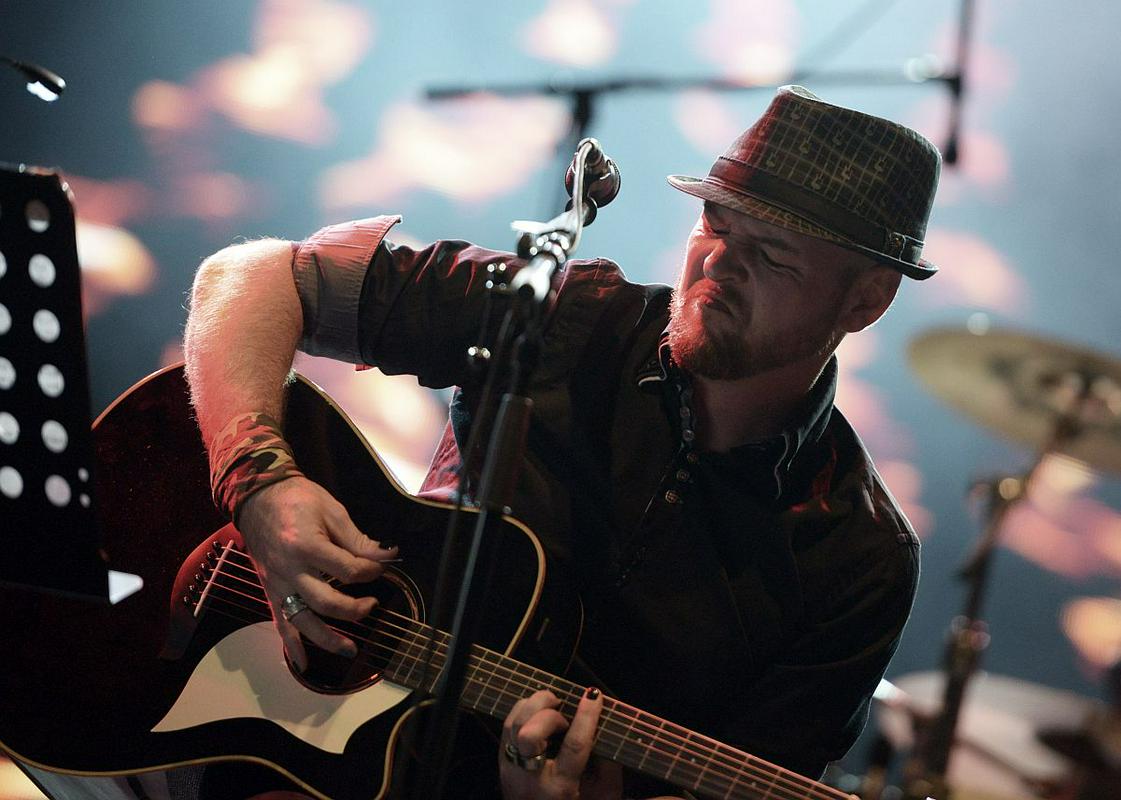

The Party set an example, exemplary citizens followed it, and the whole society was supposed to accept the same criteria about the right and wrong.
Despite a closed economic market, Slovenians could still import world culture and it just so happens that one of them was rock music. But there was a serious problem for rock performers in Yugoslavia: the suitability and social acceptability of certain music for record release had to be assessed by a commission. It was easy for the author of the lyrics to be characterised as an internal enemy undermining the then social order. There was still the possibility to make a record with avant-garde lyrics (which remain relevant today), but the authors had to forgo the payment of copyrights and the record got marked as PULP CULTURE. Records with that mark were all the more popular among young intellectuals.
New century, new country, more love
Thinking of the previous social order and Slovenia's independence from the former country we can set the dividing line between before and now, and between mainstream and alternative rock. Rock groups who marked the start of the transition the most were legends of Slovenian rock music: Buldožer, Lačni Franz, Pankrti, as one of the first Yugoslav punk bands, then Martin Krpan and Niet. The lyrics of their songs are still relevant today. These musicians, due to the problems they faced with the previous political system, can easily be placed side by side with the members of art collective Neue Slowenische Kunst (New Slovenian Art): Laibach, a musical group who made a name for themselves on the international music scene.
Group Buldožer celebrated its 40th anniversary this year. Their first record was called “Pljuni istini u oči” (Spit the Truth into Eyes), and it was released in Serbo-Croatian to reach a wider circle of Yugoslav listeners. They had to release it in Belgrade because no record company in Slovenia would accept them. The band was known for radically pushing the boundaries of artistic freedom. After three years of existence, they were awarded a golden arena for film music.
They know what God was doing on the eighth day
Pankrti are a punk group from Ljubljana. They were formed in 1977, and just like Buldožer, Niet and Lačni Franz they broke up, but also reunited. For their first performance, they debuted covers of songs by the Sex Pistols, the Clash, and the New York Dolls, but in their own way and under the influence of British punk. Group Pankrti was a Yugoslav punk guru throughout the territory of the former Yugoslavia. Their second record got an award for the best record of the year in Yugoslavia. The world's most popular musicians purchased their records, with one of them being singer Jello Biafra of the Dead Kennedys; Johnny Štulić of Azra dedicated a chorus to Pankrti in his song Balkan. One of their most popular songs is Osmi dan (The Eighth Day), where the chorus reveals that on the eighth day God created rock. Because of their extraordinary historical importance to Slovenia, the Slovenian Museum of Modern History dedicated a month-long photo exhibition to them in 2007.
The transition into the new century
Lačni Franz was a very popular rock band during the transition to the new century; the band was active during the years 1979–1997. After the breakup of Lačni Franz, its vocalist Zoran Predin continued his still very successful musical career.
Upon Slovenian independence, music financing moved away from public funds due to the substitution of the political system, the market became commercial, and poetic expression became more relaxed. The poetic punch of rock lyrics became different. In the newly created environment and with the birth of the new country, new rock names emerged on the rock scene. The group Big Foot Mama was formed in 1990. The group's name was inspired by Eros Ramazzotti. The founder of the group was then a member of another band that performed at a festival together with Eros. Because they were too loud with their revelry in the hotel room, it bothered Eros, who knocked on the door and demanded that they settle down. An overweight band member was there too. She seized Eros in her arms, and he started to scream: “No, big mama, please, no!” And so the idea was born: “Big Foot Mama”. Big Foot Mama managed to bridge the generation gap, and also managed to overcome the differences between musical genres. The band recorded the cover of a song Nekaj sladkega (Something sweet) with the folk music ensemble Lojze Slak, and then also the song Pomlad (Spring), and intertwined the two completely different musical genres.
Music dominates
When words are no longer so important, and when the music permeates every cell of the human body, then we are talking about Siddharta. Rock band Siddharta, one of the few bands in Slovenia that makes a living primarily out of music, celebrates its 20th anniversary this year. For this anniversary, they decided to release a record with a song for each year of their existence. Because that many songs won't fit on one record, they are making two. They're called Infra and Ultra, and will be published at the end of this year. Siddharta, which is named after the eponymous novel by the German writer Herman Hesse, was proclaimed a promising group before the release of their first record. The group set a new milestone in the history of Slovenian rock music when they played before a crowd of 30,000 with the RTV Slovenia Symphony Orchestra at Bežigrad Stadium, Ljubljana in 2003. Siddharta’s sound is pervasive because of the mixture of musical instruments: guitar, bass, vocals, drums, saxophone, and keyboards.
Metal music has its own scene in Slovenia. Metal Mania Open Air and Metal Camp festivals are very popular during the summer. Metaldays festival ensures “heavy metal holidays” with cocktails on the beach and swimming in the river. And the rest of Slovenian rock bands? Mi2, Olivija, Dan D, Slon in Sadež, Gal in Galeristi, Hiša, Moveknowledgement, Melodrom.
Danila Mašić, SINFO


































































